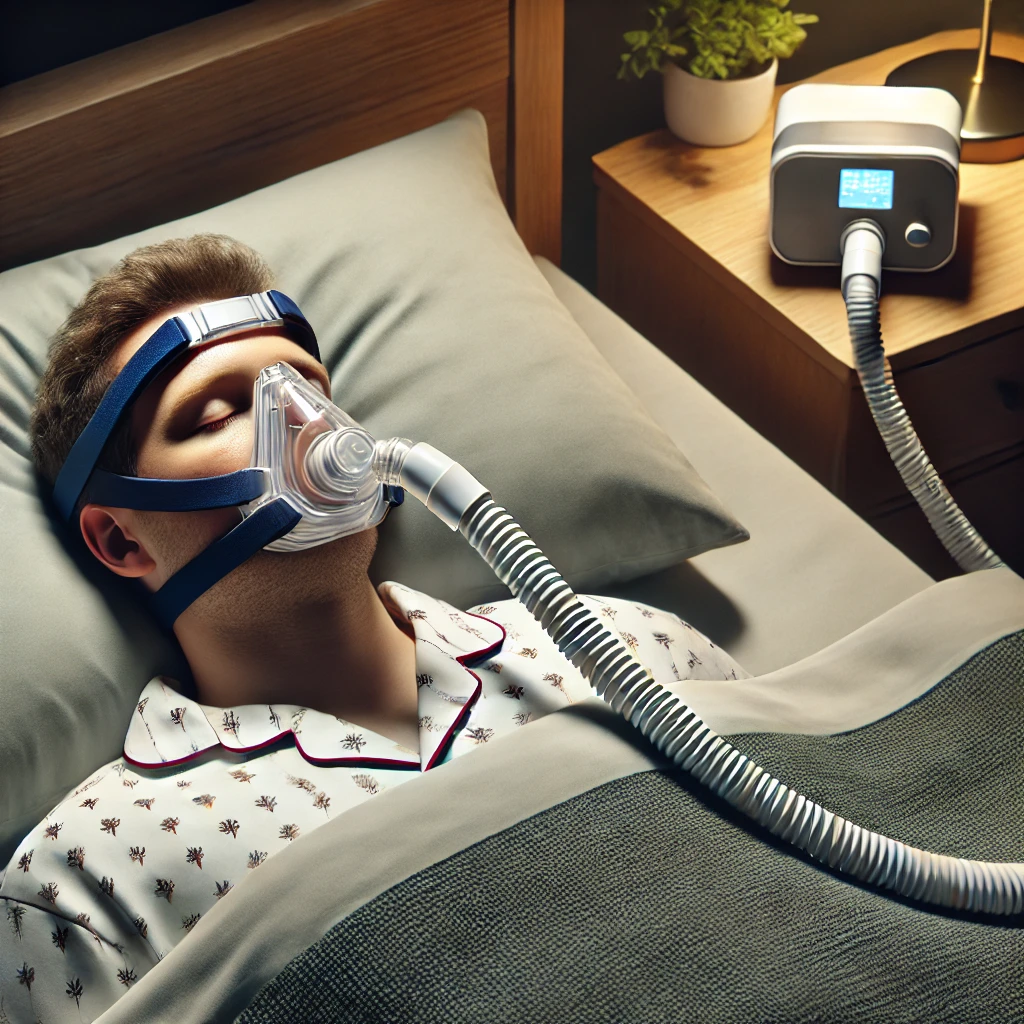Why You Lose Sleep Due to Sleep Apnea

Why You Lose Sleep Due to Sleep Apnea
Sleep is supposed to be restorative. It’s the time when your body repairs itself, balances hormones, consolidates memory, and prepares you for a new day. Yet for many people, sleep is anything but restful. One of the most common reasons for disrupted sleep is sleep apnea, a condition that silently robs your body of oxygen and interrupts your natural sleep cycles.
At Sheen Vein & Cosmetics in St. Louis, we see firsthand how sleep apnea affects quality of life and overall health. Patients often come in complaining of fatigue, brain fog, poor focus, and even weight gain—only to discover that untreated sleep apnea is at the root of their struggles.
What Is Sleep Apnea?
Sleep apnea is a condition where breathing repeatedly stops and starts during sleep. The most common form, obstructive sleep apnea (OSA), occurs when the muscles in the back of the throat relax too much and block the airway. This leads to shallow breathing or complete pauses in breathing that can last 10 to 30 seconds—or longer.
Each time this happens, your brain senses the drop in oxygen and briefly wakes you up to restore breathing. These awakenings are usually so short you may not remember them, but they fragment your sleep hundreds of times per night.
Why Sleep Apnea Causes You to Lose Sleep
- Interrupted Sleep Cycles
Healthy sleep follows a rhythm: light sleep, deep sleep, and REM sleep. These cycles are essential for restoring the brain, repairing tissues, and regulating hormones. When you have sleep apnea, your brain keeps pulling you out of deeper stages of sleep to reopen the airway. This leaves you stuck in lighter stages of sleep and prevents true rest. - Oxygen Deprivation
Every time your airway collapses, oxygen levels drop. The brain and heart immediately react with stress hormones like adrenaline to force a breath. Over time, these surges of stress hormones keep your nervous system in a “fight or flight” state—even while you’re supposed to be resting. This contributes to nighttime awakenings and daytime fatigue. - Frequent Micro-Arousals
People with sleep apnea may not fully wake up, but their brains experience constant micro-arousals. Imagine someone nudging you awake hundreds of times a night—you’d never feel refreshed in the morning. That’s exactly what sleep apnea does on a subconscious level. - Snoring and Restlessness
Loud snoring, gasping, or choking are hallmark signs of sleep apnea. These events often wake you—or your partner—multiple times throughout the night. Many couples report that both people lose sleep due to the disruptive sounds and movements of apnea episodes.
The Health Risks of Poor Sleep from Apnea
Losing sleep isn’t just about feeling tired. Long-term, untreated sleep apnea has serious health consequences, including:
- High blood pressure and heart disease due to constant stress hormone release
- Insulin resistance and weight gain, making it harder to lose weight
- Cognitive decline, memory problems, and difficulty concentrating
- Increased risk of stroke and other vascular conditions
For patients who already struggle with cardiovascular health or chronic venous insufficiency, untreated sleep apnea can make circulation problems even worse.
Signs You Might Have Sleep Apnea
Many people dismiss their symptoms as “just being tired,” but there are red flags that should never be ignored:
- Loud, chronic snoring
- Gasping or choking at night
- Morning headaches
- Dry mouth or sore throat upon waking
- Daytime sleepiness, even after a full night in bed
- Irritability, mood changes, or brain fog
If this sounds familiar, it’s worth getting evaluated. At Sheen Vein & Cosmetics, we approach sleep apnea as part of a bigger picture—looking not only at airway obstruction but also at how your hormones, weight, and circulation might be contributing.
How We Can Help
Functional medicine teaches us that sleep apnea doesn’t exist in isolation. For example:
- Weight gain can worsen airway collapse, while insulin resistance can both stem from and worsen apnea.
- Inflammation in the airways can increase snoring and obstruction.
- Hormonal imbalances, like low testosterone or thyroid dysfunction, often accompany poor sleep and fatigue.
Our team takes a root-cause approach to treatment. In addition to coordinating sleep studies when needed, we evaluate your metabolic, vascular, and hormonal health. By addressing the bigger picture, we not only help patients breathe better at night but also improve energy, focus, and overall vitality during the day.
Take the Next Step Toward Better Sleep
If you’re losing sleep due to sleep apnea, you don’t have to settle for feeling tired every day. Proper diagnosis and a tailored treatment plan can restore your health and quality of life.
At Sheen Vein & Cosmetics in St. Louis, we specialize in uncovering the root causes of fatigue, poor circulation, and hormone imbalances. Our team combines advanced testing with personalized care to help you get the restful sleep your body deserves.
👉 Learn more about our functional medicine services
👉 Schedule your consultation today